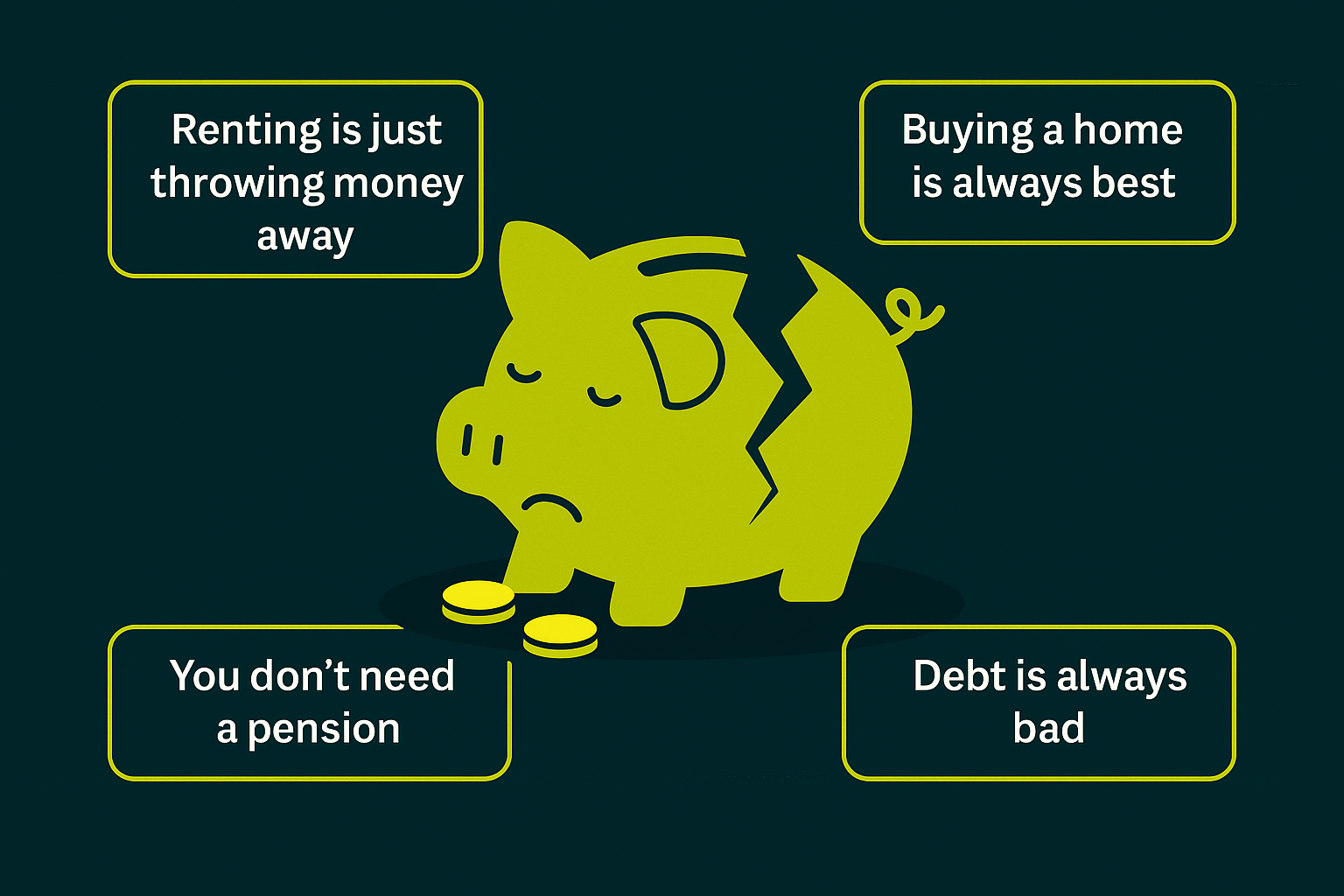From outdated ideas about budgeting to silence around money talk, many financial myths still shape how people think and act with their finances. Unfortunately, these misconceptions can lead to missed opportunities, stress, or poor financial habits.
This article aims to debunk some of the most common money myths in the UK – purely for informational purposes, not financial advice. Let’s separate fact from fiction so you can make better-informed decisions.
It is common to hear that debt should always be avoided. But not all debt is created equal. Harmful debt – like high-interest credit cards or payday loans – can be damaging if unmanaged. However, other types such as student loans or mortgages may serve a long-term purpose when used wisely.
Strategic borrowing, when planned and affordable, plays a role in many people’s financial journeys. Still, it’s important to know the risks and stay informed through trusted sources like MoneyHelper UK.
Note: This is not financial advice. Always consult a regulated adviser before making financial decisions. Ultimately, retirement is as much a personal change as it is a financial one.
Many people grow up believing that discussing money is taboo. Yet, staying silent can lead to confusion, anxiety, and poor planning. Talking openly about money with trusted family members or partners can help you align goals, plan ahead, and avoid misunderstandings.
Whether you are budgeting for retirement or planning a family legacy, communication builds clarity and reduces stress. Organisations like MoneyHelper UK offer useful tools for navigating these conversations.
This myth keeps many from starting their investment journey. While it’s true that investment carries risk, you do not need large sums to begin. Small, consistent contributions can add up over time due to compounding. The amount you need for a comfortable retirement in the UK varies depending on lifestyle, location, and personal expectations.
Firms like Fidelity explain that early and regular investing can benefit those at all income levels.
Budgeting often gets a bad reputation, but it is not just for people in financial trouble. In fact, a budget can help anyone gain control, set goals, and plan with confidence.
Procrastinating on savings is a common pitfall. While it might seem logical to wait until you earn more, the earlier you start, the better. That is thanks to compound interest – even small contributions can grow significantly over time.
According to MoneyHelper UK, many savers wish they had started sooner. Building good habits now, even modest ones, lays the groundwork for stronger financial wellbeing later.
Many people equate wealth with success, but that is only one perspective. Emotional fulfilment, meaningful relationships, and personal growth all play a role in a successful life.
Financial wellbeing is about feeling secure and aligned with your goals – not just chasing numbers. The Mental Health Foundation also highlights that excessive financial pressure can harm wellbeing.
At Zomi Wealth, we believe money should serve your life’s purpose, not define it.
The “Rule of 3” in personal finance has several interpretations:
There is no single correct formula. What matters is that your money management system matches your priorities.
Learn more about budgeting frameworks at MoneyHelper.
This simple budgeting guideline suggests:
Popularised by financial writers and supported by platforms like Fidelity, this rule offers a basic structure to plan your monthly outgoings.
This is not a universal rule, but a useful starting point.
Some of the most common money missteps include:
These patterns often stem from lack of education, not laziness or carelessness. By understanding your money better, you can avoid costly decisions.
Free resources like MoneyHelper’s financial basics guide can help you navigate your personal finance journey.
Whether you have been influenced by outdated myths or just want to take more control, Zomi Wealth is here to offer tools and insight, not financial advice.
We help you rethink how you view money so that your finances can support your life, not limit it.
MoneyHelper UK – Budgeting & Saving
Fidelity – Money Myths & Budgeting
Mental Health Foundation – Financial Stress








